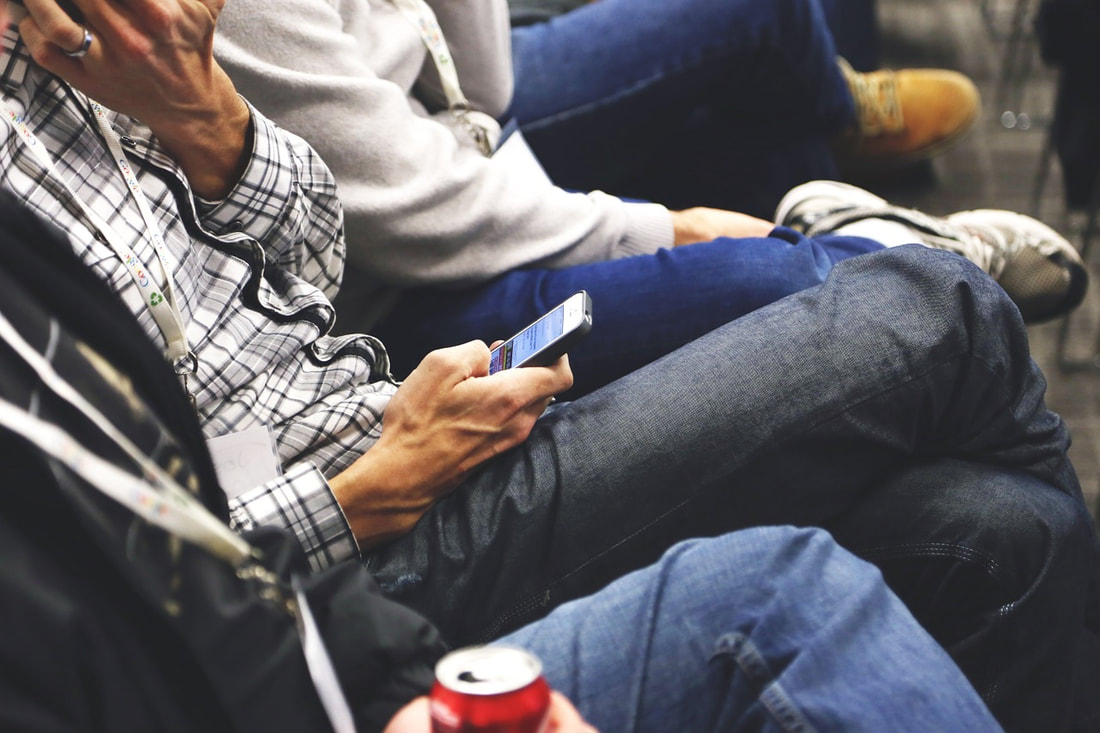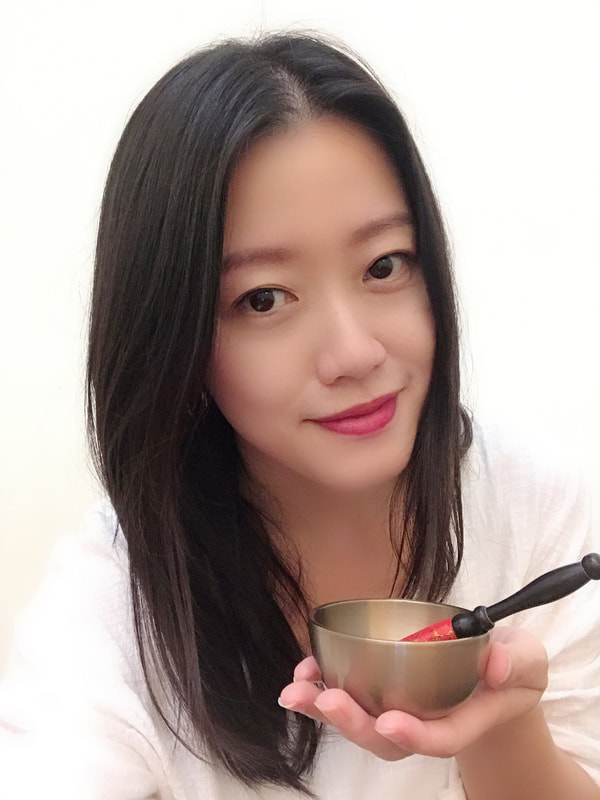|
In the Mindful Musings series, MiMo Founder and Mindfulness Coach Erin shares her personal thoughts and views about the practice of mindfulness. I like to observe the environment around me, especially when I'm commuting from one place to another on the train. One thing I notice is how as a society living in crowded spaces, our physical bodies are so close in proximity to one another - sometimes in an almost smothering way during the peak hours, but our mind is often miles apart, not just from person to person, but also from ourselves. As I scan the space around me on the train, I find it interesting that the first thing I see would always be the crown of people's heads. Everyone would be looking down at their phones - either busy replying to messages, or browsing the web, or playing a game. Occasionally, they would look up to check which station the train was at, and then resume to bowing down to their gadgets again. Their attention would almost never leave the screen in front of them. I would then look more closely at their faces and expressions, and what I often recognize is a shared sense of deep-seated exhaustion - perhaps leftover from a day of working and firefighting, or from a lack of restful sleep at night, or from some personal troubles. I would think, if people are so tired, why don't they close their eyes and rest for a while? Why do they choose to have an external object drain more energy from them? Perhaps they don't want to know how tired their body feels, or they dread facing how much is on their mind, so watching a random video on their Facebook feed would obviously be a much "easier" option. As a society, we are collectively exhausted, and we don't know it. Or rather, we don't want to know it. We are living in a world full of external objects that stimulate the mind, and we have gotten so used to being absorbed in them or using them as a distraction, that we no longer have the capacity to turn our attention inwards to tend to what's going on inside us. Keeping ourselves occupied with something, even when we don't need to, seems to be much more accessible than just sitting and being with ourselves. But what we are giving up in exchange for a coping mechanism masked as a temporary relief from having to confront our exhaustion, is the opportunity to know the mind and body for what they are, and how they are doing. In the practice of mindfulness, we train ourselves to constantly turn our attention inwards to observe the mind and body. Being mindfully aware of what's going on inside us may seem counter-intuitive at first, since we instinctively want to avoid or fight off anything that feels unpleasant or negative to us; but when we are able to rest our attention inwardly, we can then recognize what the body is being put through, as well as understand what the mind may be unnecessarily holding on to, thus becoming better able to take care of ourselves.
0 Comments
|
About The AuthorMiMo founder Erin Lee is a Mindfulness Coach and MBSR Teacher at Mindful Moments, and advocate of mindfulness as the way of life. She conducts the classic 8-Week MBSR Program, as well as the 8-Week MBSR Workplace Program. Categories
All
ContributeAre you a mindfulness practitioner and have meaningful experiences or thoughts about mindfulness that you'd like to share? You can contribute an article on the MiMo blog! Please contact Erin to find out more.
Archives
June 2021
|



 RSS Feed
RSS Feed